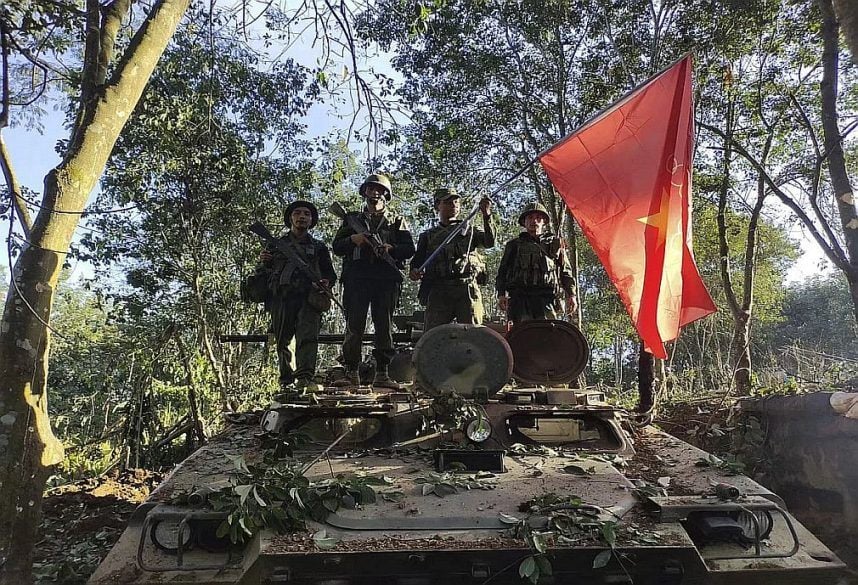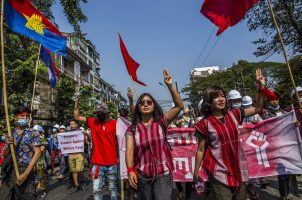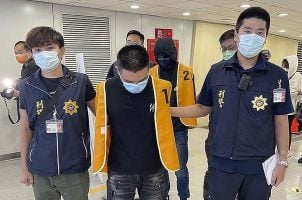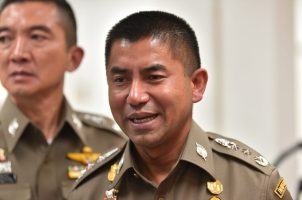Gambling Targeted During Growing Myanmar Civil War
Posted on: November 28, 2023, 07:43h.
Last updated on: November 29, 2023, 10:14h.
In Myanmar, the struggle against the military junta that seized power three years ago has evolved into a multifaceted resistance, with various militias and forces joining hands. Beyond the overarching goal of ending military oppression, a unique aspect has emerged – the resistance’s determination to eradicate rampant online gambling fraud in the country.

At the forefront of this anti-gambling initiative is the Three Brotherhood Alliance, comprised of groups such as the Ta’ang National Liberation Army (TNLA) and the Myanmar National Democratic Alliance Army from Kokang. Their focus extends beyond the oppressive political regime, aiming to dismantle the “widespread online gambling fraud” plaguing Myanmar.
The Three Brotherhood Alliance has pointed fingers at China, emphasizing that a significant portion of the illicit gambling activities occurs along the border shared by the two nations. Allegedly, junta militias financially backed by Chinese criminal organizations lead many of these fraudulent activities.
Resistance forces, which are gaining ground by seizing border towns and military positions, seek political change and the eradication of criminal enterprises. Human trafficking has been a major part of the illegal gambling scene and has become an increasingly larger problem in Myanmar over the past several years.
Criminal Element Takes Root
This has been due, in part, to the military junta’s unwillingness to address the issue. Instead, it has been dedicating almost all its resources to maintaining its power over the country. This has led to an almost single-minded military exercise against the increased resistance and has reached the point that the government no longer provides updated data on human trafficking and other crimes.
The U.S. State Department explains that it has lumped most crimes for which individuals were punished into one large group.
When international NGOs have attempted to intervene and understand human trafficking patterns, government forces have run them out of the country.
The anti-gambling stance within the resistance reveals a broader commitment to reforming Myanmar addressing political and socio-economic issues. As the conflict unfolds, the dynamics of this multifaceted resistance continue to shape Myanmar’s trajectory.
Resistance Gains Ground
Operation 1027, initiated in October, represents a collaborative effort among three rebel armies steadily advancing and capturing cities and towns nationwide. The offensive, aimed at overthrowing the military government in favor of a democratic alternative, has become the most extensive series of armed clashes since the coup, as reported recently by the UN Office for Humanitarian Affairs.
One significant player in the resistance, Burma National Revolutionary Army Commander Bo Nagar, told CNN that this marks “the beginning of the end” for the State Administrative Council, the junta body. The resistance movement is gaining momentum, not only challenging the military’s political control but also confronting the illicit financial networks associated with online gambling.
However, the conflict will also likely have a wider impact on the entire region, as it has the potential to create a ripple effect across Southeast Asia, impacting various facets of regional dynamics, such as economic stability and diplomatic relations.
Related News Articles
Philippine Human Trafficking Victims Return Home After Myanmar Gambling Scam
Thai Police Question Police Chief Allegedly Tied to Illegal Online Gambling
Chinese Gambling Boss Reported Behind Singapore Money Laundering Ring
Most Popular
Mirage Las Vegas Demolition to Start Next Week, Atrium a Goner
Where All the Mirage Relics Will Go
Most Commented
-
Bally’s Facing Five Months of Daily Demolition for Chicago Casino
— June 18, 2024 — 12 Comments -
Chicago Pension Mess Highlights Need for Bally’s Casino
— July 2, 2024 — 5 Comments
















No comments yet